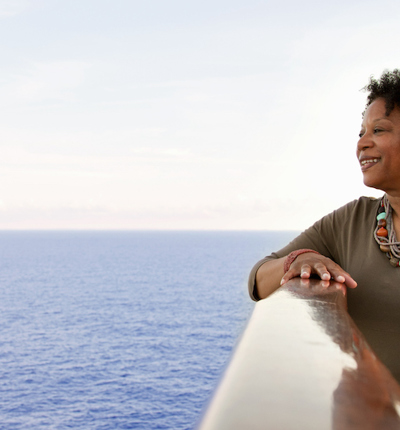
Cruise companies face uncertain future and legal battles ahead
In this blog travel law expert Clare Campbell discusses the future of cruise ship holidays as the companies behind them face an uncertain future following COVID-19 and legal action from passengers and bereaved families.
Posted on 09 April 2020
The travel industry has been hugely affected by the Coronavirus pandemic. The first casualty was back in early March when Europe’s biggest regional airline Flybe went into administration citing the virus as the last straw in an already difficult market. With the Foreign Office advising against all non-essential travel “indefinitely”, travel companies and airlines are bracing themselves for a difficult future.
The cruise industry is particularly badly affected. Worth a staggering £37 billion a year the industry has seen ships ground to a halt and future bookings cancelled or simply not materialising.
Their situation looks likely to get worse with the news that various cruise companies are facing class action lawsuits from thousands of passengers for their apparent mishandling and “negligent misconduct” relating to the outbreak.
A class action lawsuit was filed in Miami against Costa Crociere SPA and Costa Cruise Lines Inc by over 2,000 guests who sailed on the Costa Luminosa from Fort Lauderdale on 5th March 2020. Lawyers acting for the group allege that passengers were “dragged across the Atlantic in a ticking coronavirus time bomb”.
The crux of the case is that Costa Luminosa set sail across the Atlantic knowing that it was extremely likely that there would be an outbreak of Covid-19, similar to those of the well-publicised Diamond Princess and Grand Princess cruises in early February 2020.
Interestingly, both ships are owned by Costa’s parent company Carnival. According to the lawsuit papers, passengers were told that there was nothing to worry about and if they cancelled, they would not be entitled to a refund.
Just days into the cruise, passengers started to fall ill. The ship docked in Puerto Rico on 8th March and three passengers were taken to hospital where they later died.
Worryingly, however, the cruise company apparently did not communicate this news to the other passengers, the vast majority of whom were in the most vulnerable age range. Having been told of the risks, they argue, would have given them an opportunity to disembark. Instead the ship carried on with its journey.
There are also allegations that Costa concealed information regarding the deaths and outbreak by blocking external news channels. Some passengers only found out that there were cases on board the ship from the media rather than the cruise operators themselves.
Passengers argue that the steps taken by Costa were too little, too late with an estimated 75 passengers from the Luminosa testing positive and seven passengers dying from the virus.
Carnival are also facing a class action suit in Australia on behalf of dozens of passengers who sailed on the Ruby Princess ship.
Again, the passengers allege that they were not adequately warned of the risks onboard nor were they monitored for symptoms. So far, the Ruby Princess accounts for hundreds of coronavirus cases in Australia and at least 10 deaths.
The New South Wales Government has gone so far as to order a criminal investigation into whether or not any laws have been broken.
Cruise ships are notorious breeding grounds for viruses due to the sheer number of people in a relatively confined space and the industry is no stranger to handling mass outbreaks of illness. Stringent hygiene measures are in place on board to try and limit exposure but arguably when dealing with the COVID-19 outbreak the industry underestimated the virus and was sluggish in their response.
Under maritime law, Cruise ship carriers owe their passengers a duty of care to ensure that they take “all reasonable measures” to avoid harm. The question is whether the cruise carrier’s decision to continue with their cruises put passengers health and safety at risk.
Time will tell whether or not the cruise ship industry will recover from this outbreak, but for now they certainly have questions to answer regarding the steps they took to preserve the safety of their passengers.
Whether or not there can be civil or criminal liability attached to the companies will depend on a number of factors but there is no doubt that a thorough and transparent investigation needs to commence immediately.
The safety and well-being of passengers is paramount and if there are found to be failings by the cruise companies then urgent steps need to be taken to ensure that lessons are learned and outbreaks of this scale and seriousness are handled more effectively in the future. If it is found that the cruise companies have grossly mismanaged the coronavirus outbreak, then further litigation will inevitably follow.
This article was amended on 14 April 2020 at 10.20am


